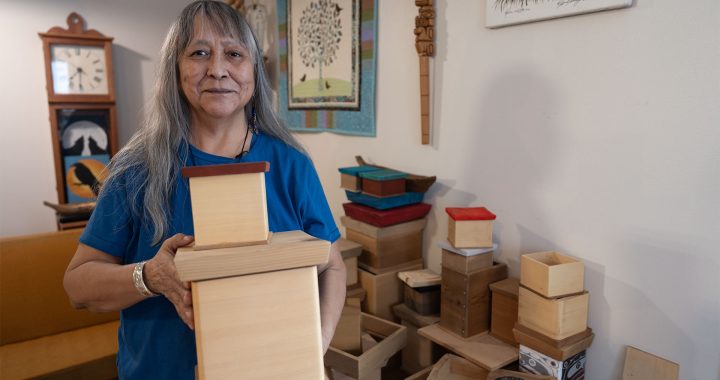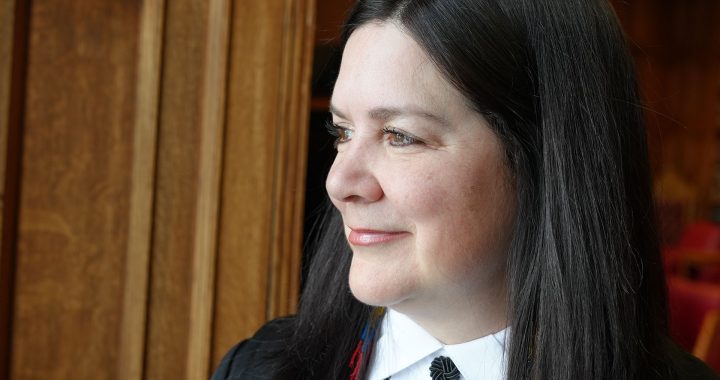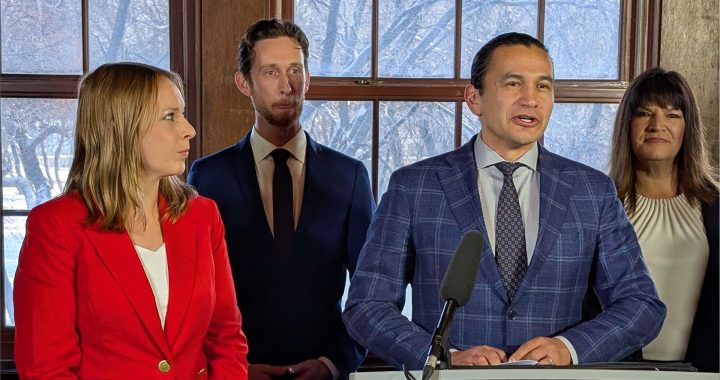Some people have a five-year plan but Anishinaabemowin language keeper and educator, Pat Ningewance, has a 50-year vision.
“Five years just goes like that. Fifty years is a better way to look at our time here, maybe even a hundred years,” Ningewance, the author of over a dozen Indigenous language texts said during an interview in her backyard. “What do we want our language to be a hundred years from now?”
In her half-century vision of Indigenous language revitalization, broadcasters, like APTN, have a role to play.
“You, make movies,” she said, gesturing to the camera. “Write the scripts in Ojibwe or Cree, Dakota, so you’re getting the real language, and train people who are fluent to act, while we’re still alive.”
That’s where APTN Languages comes in.
A new home for Indigenous languages
On May 14, the Canadian Radio-television and Telecommunications Commission (CRTC) gave APTN the green light to launch a new Indigenous language channel.
On Sept. 1, APTN’s four channels–north, west, east and HD–will be consolidated into two: one with programming in English and French, and another, APTN Languages, completely dedicated to Indigenous languages.
“This content is going to be made available to anyone who has a cable subscription across Turtle Island,” said Mike Omelus, APTN’s executive director of content and strategy said. “That means people who are from the far north, who are living down south in communities can stay attached and connected to their language and their culture through APTN.”
In the fall, APTN Languages will feature programming in 18 Indigenous languages from coast to coast to coast. Omelus said the channel will display subtitles in English and French, giving native speakers, learners and non-speakers the chance to enjoy the programming.
25 years in the making
Since its inception in 1999, APTN has broadcasted programming in 54 Indigenous languages, said Omelus.
During the 2010 Winter Olympics, APTN’s Rick Harp was tasked with hosting the world’s first Indigenous language coverage of the event.
The network tracked down fluent speakers of eight languages and gave them a crash course in broadcasting.
“There was just a real air, I think, a real buzz around that space because we knew we were taking on something at a scale and an intensity we had never quite done before,” Harp said. “We rose to the challenge, and I think we all felt a great sense of pride at having done it and having made it through.”
The program’s success paved the way for broadcaster Clarence Iron to call the shots on Hockey Night in Canada in Cree, which premiered in 2022.
Iron, who held onto his Plains Cree language through residential school, said the opportunity fulfilled a lifelong dream.
“I had a dream when I was younger (that) one day I wanted to call hockey. But I was getting a little bit up in age, so I thought, well maybe the opportunity would never arise,” Iron said over the phone. “Given that opportunity, boy I took it seriously… it was a really good feeling, a good experience, especially in your own language.”
Reflecting on the upcoming launch of the channel, he stressed the power of hearing one’s language spoken aloud.
“When you hear somebody speak your own language, it’s alive, there’s something there,” he said. “It’s hard to describe, but when you start listening to people that speak your own language, things start happening. It’s very amazing.”
From Anaana’s Tent to Anangong Miigaading (Star Wars)
Starting Sept. 1, more than 100 hours of weekly Indigenous language programming will air on APTN Languages.
The debut schedule includes Anaana’s Tent, a children’s series about Inuit culture, which will air its third season in Inuktitut.
Producer Louise Flaherty said the show has been vital in exposing children to Inuktitut and life up north.
“(It’s) very important for APTN to air Indigenous languages and Inuktitut, because once you take a film, it’s there forever,” Flaherty said. “Even as a producer, creator, when we pass on, that content is still there.”
On Oct. 13, the Anishinaabemowin dub of Star Wars (Anangong Miigaading): A New Hope will premiere on APTN Languages.
Ningewance, the film’s lead translator, hopes to see more original language content on the channel.
It’s a goal Omelus shares.
“Rather than just versioning programs in Indigenous languages, where we want to go is producing programs in Indigenous languages, with speakers doing the roles from beginning to end,” he said.
Speaking to the next generation
At 73 years old, Ningewance has dedicated her life to nurturing Anishinaabemowin speakers. That includes her grandson, Aandeg Muldrew, who played Luke Skywalker in Star Wars (Anangong Miigaading): A New Hope.
“There are people today, young people who are learning, who are really, really passionate about learning it. My grandson is one of them,” she said.
But as native speakers pass on, broadcasters like APTN Languages must help immortalize the language for future generations, she said.
“We need to do acting, we need to be taped telling stories,” she said. “Train those who are learning the language to sound very much like us while they’re acting, because that’s what’s going to be heard fifty years from now, a hundred years from now.”
APTN Languages launches on September 1st on cable and satellite services across Canada. Check with your television provider to learn how you can tune in.











